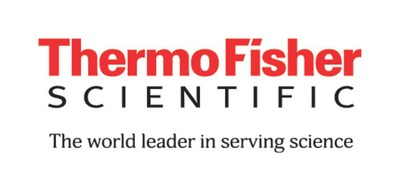University of Pittsburgh and Thermo Fisher Scientific Establish Pharmacogenomics Center of Excellence
Collaboration will support translational research that demonstrates the value of PGx in precision medicine
PITTSBURGH, April 5, 2018 /PRNewswire/ — Thermo Fisher Scientific and the University of Pittsburgh have established a new Pharmacogenomics (PGx) Center of Excellence that combines expertise and technology in genomics, bioinformatics, implementation science, medication response phenotyping and education. The Center aims to discover and validate medication response predictors in patients, overcome clinical implementation barriers and demonstrate the value of pre-emptive PGx testing in routine clinical practice.

Strategically, the PGx Center of Excellence will focus on:
- State-of-the-art technologies to identify the genomic determinants of medication response and provide world-class PGx analysis and interpretation for researchers, clinicians and patients;
- Demonstrating the clinical utility and economic value of PGx-based care in emerging healthcare delivery models at Pitt/UPMC, the largest nonprofit academic health system in the nation;
- Developing effective methods for return of PGx results to achieve clinician and patient education;
- Advancing PGx and technology awareness and adoption, providing leadership in technology translation through innovative educational platforms, conferences and hands-on workshops hosted by Pitt and Thermo Fisher to disseminate expertise and best practices nationally.
The new center will feature Thermo Fisher’s portfolio of PGx testing solutions, including its PharmacoScan platform, to study preemptive panel-based PGx testing and return results in at least 150,000 patients in western and central Pennsylvania. The team expects that this high-density population screening of 4,627 markers within 1,191 genes will yield concise PGx signatures that associate with novel and known phenotypes within specific patient cohorts. The objective is to demonstrate that targeted testing can be deployed clinically at population scale using proven testing platforms that have been designed for greater speed and precision.
The new Center, which is a demonstration of University of Pittsburgh’s commitment and investment in advancing research and fostering industry engagement, will immediately leverage Pitt+Me Discovery, the new institutional bio-repository developed by the University of Pittsburgh Clinical and Translational Science (CTSI). It also extends the highly successful PGx clinical implementation (PreCISE-Rx) and (Test2Learn) educational programs already implemented in Pittsburgh.
According to the U.S., Food & Drug Administration, pharmacogenomics is an important part of precision medicine. It can reveal how a person’s genetic makeup may affect their response to a drug, and this can assist healthcare providers in “choosing a drug that is more likely to work, avoiding drugs that might have side effects, adjusting the dose of a drug, or determining if closer monitoring is needed.”
Pharmacogenomics is increasingly used during drug discovery and development as well.
“Pharmacogenomics envisions the widespread use of genetic testing to predict how patients may respond to particular medications, but barriers to clinical implementation still exist,” said Alan Sachs, chief scientific officer at Thermo Fisher Scientific. “Together with the University of Pittsburgh, we realized that no single entity had stepped forward to establish the clinical utility of this approach at population scale, and this was the impetus for launching the new Center of Excellence.”
Dr. Philip Empey, associate director for pharmacogenomics in the Institute for Precision Medicine and faculty in the School of Pharmacy and the Clinical and Translational Institute, will lead the Center. He will oversee expert teams of faculty and staff focused on pharmacogenomics, implementation science, bioinformatics, analytics, economics, and education. An advisory board comprised of representatives from the University of Pittsburgh, University of Pittsburgh Medical Center (UPMC), Thermo Fisher and external experts will guide program vision and timelines.
“This is the first academic-industry collaboration focused on PGx at this scale, and we expect it will accelerate the translation of PGx into routine clinical practice” said Dr. Empey. “With Thermo Fisher, we will be able to deploy the most advanced technologies strategically, including contemporary genotyping arrays and next-generation sequencing to demonstrate the clinical utility and economic value of pre-emptive PGx testing.”
“Pitt+Me Discovery will be a powerful resource for the Pharmacogenomics Center of Excellence, eventually providing samples from up to 150,000 individuals that can be used to demonstrate the value of implementing a preemptive PGx approach in a large health care system,” said Steven Reis, M.D., director of the University of Pittsburgh Clinical and Translational Science Institute. “In addition to advancing PGx discovery, the center will create novel methodologies to return actionable results back to patients and providers that will serve as a model for other types of clinically applied genetic testing.”
About Thermo Fisher Scientific
Thermo Fisher Scientific Inc. is the world leader in serving science, with revenues of $20 billion and more than 65,000 employees globally. Our mission is to enable our customers to make the world healthier, cleaner and safer. We help our customers accelerate life sciences research, solve complex analytical challenges, improve patient diagnostics, deliver medicines to market and increase laboratory productivity. Through our premier brands – Thermo Scientific, Applied Biosystems, Invitrogen, Fisher Scientific and Unity Lab Services – we offer an unmatched combination of innovative technologies, purchasing convenience and comprehensive support. For more information, please visit www.thermofisher.com.
About University of Pittsburgh
An internationally renowned public-research university founded in 1787, the University of Pittsburgh (www.pitt.edu) is a leading center of learning and research in the arts, sciences, humanities, professions, and health sciences. Pitt ranks fifth among all U.S. universities in terms of the competitive grants awarded to members of its faculty by the National Institutes of Health and consistently ranks among the country’s leading U.S. public research universities, according to The Top American Research Universities report issued by The Center for Measuring University Performance. With 16 schools and colleges and over 28,000 students on five campuses, the University offers nearly 400 distinct degree programs.

SOURCE Thermo Fisher Scientific





